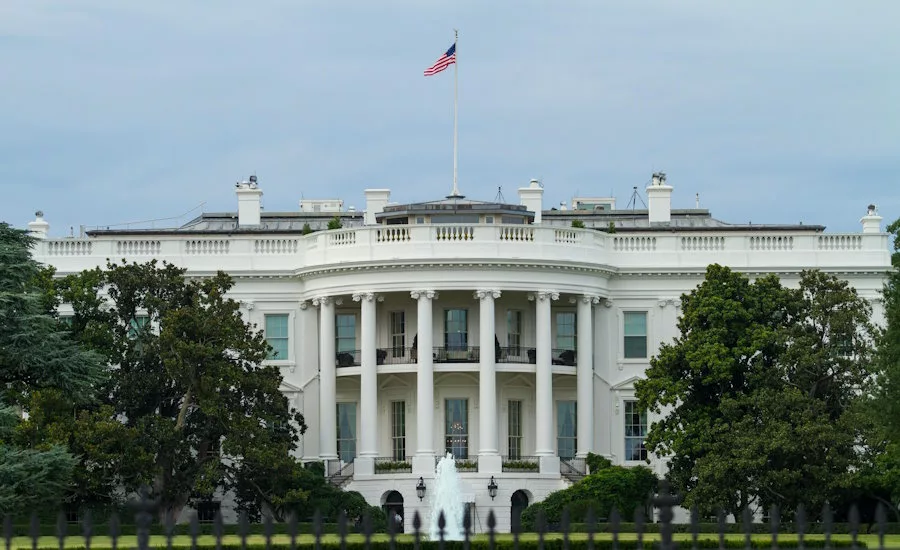How Roofing Contractors Can Brace for Tariffs
Roofers must incorporate the impact of tariffs into their contracts

Photo by Ramaz Bluashvili via Pexels.
Since the Trump administration took office, tariffs on trading partners have become a dominant lever of U.S. economic policy. Canada and Mexico are two major suppliers of materials for American construction contractors, and 25% tariffs on both countries are set to take effect on April 2.
However, the administration appears to be backing off some of the most severe tariffs scheduled for Wednesday, so it is unclear if the full tariffs on Canada and Mexico will be levied. The United States has imposed a 20% tariff on all goods from China, as well as 25% steel and aluminum tariffs across the board.
Tariffs will have a significant impact on roofing contractors. From driving up the cost of materials to severing supply chains, many fear tariffs will lead to protracted project timelines, financial strain, and other disruptions that have the potential to damage relationships between roofers and their customers and partners. This is why roofing contractors must proactively address the challenges posed by tariffs with contracts that account for labor and supply shortages, price hikes, and persistent uncertainty about the regulatory environment. Roofers must evaluate their existing contracts for vulnerabilities and renegotiate those contracts if they lack provisions that cover the consequences of tariffs.
There’s no telling exactly which tariffs will be in place or how long they will last over the next several years, and this uncertainty makes it all the more important for roofing contractors to negotiate and implement contracts that cover a wide range of possible outcomes. The roofers who prioritize contract reevaluations now will be prepared for the inevitable costs and disruptions that tariffs will bring.
How Will Tariffs Affect Roofing Contractors?
The effects of tariffs are already being felt in the roofing industry. In January, construction materials prices — particularly the cost of iron and steel — increased at the fastest pace in two years. Materials costs are rising due to higher demand in anticipation of tariffs, which has increased the pricing power of domestic suppliers. As iron and steel prices surge, the cost of softwood lumber also saw a sharp month-to-month increase. Prices are expected to continue climbing as contractors front-load orders and shift to domestic suppliers.
The United States receives over a third of its steel imports from Canada and Mexico, while Canada alone provides 58% of aluminium imports. The steel and aluminum tariffs are already in place, and they will raise costs for a wide range of critical roofing materials — from aluminum drainage systems and flashing to steel framing, roofing panels, and fasteners. This will drive up the cost of installing a new roof for customers, which will likely reduce demand. It’s no wonder that a growing proportion of Associated Builders and Contractors members expect their profit margins to decline over the next six months.
Beyond the potential for a demand shock, roofing contractors will also confront delayed projects and cost overruns that have the potential to damage their relationships with customers and other partners. These are the reasons roofing contractors must proactively address the disruptions, higher costs, and other consequences of tariffs with revised contracts.
Addressing Current Contract Liabilities
Many existing contracts in the roofing industry don’t adequately address the fallout from tariffs and other large-scale economic or policy shifts. For example, contracts often contain broad and vague language that doesn’t clearly outline the conditions for reimbursements or timeline extensions in the event of government actions or economic developments that lead to supply chain disruptions, higher costs, labor shortages, and a wide array of other challenges. This lack of clarity increases the likelihood of disputes that can exacerbate the problems roofing contractors, their partners, and customers already face.
A lack of explicit requirements and protections in contracts can create significant vulnerabilities. For example, the Trump administration recently issued an executive order that directs agencies to “terminate or modify” contracts that aren’t aligned with the administration’s policies and spending goals. The administration’s ability to adjust or even eliminate existing contracts is heavily dependent on the terms of those contracts, many of which were signed before anyone could have anticipated the executive order.
Whether a roofing contractor is working with the federal government or not, it’s essential to have a thorough understanding of the specific terms of contracts. These terms have sweeping implications for pricing and timeline adjustments, notice requirements, insurance and performance bonds, and many other variables. Now is the time for roofers to conduct a comprehensive evaluation of their current contracts to identify vulnerabilities and prepare for years of disruptive tariffs.
A New Approach to Contract Negotiation
Roofing contractors face higher prices for steel, aluminum, lumber, and other materials; supply chain disruptions that will affect project schedules; and an unpredictable policy environment that will make strategic planning difficult for the next several years. On top of all that, the roofing industry (like other construction sectors) is confronting a shortage of skilled labor — a problem that will likely get worse due to tight immigration restrictions. These are the reasons roofing contractors must negotiate contracts that are flexible enough to address rising costs, shifting timelines, and alternate approaches to sourcing.
For example, contracts must include price and time adjustment clauses that account for costs and delays caused by tariffs. Force majeure clauses provide similar flexibility around supply chain disruptions by outlining alternate sourcing strategies in advance. There should also be contingency plans for labor shortages, particularly when roofing contractors are already facing challenges in finding skilled workers.
Insurance and performance bonds should be governed by explicit conditions that cover unforeseen risks like the imposition of tariffs. Contracts must also contain detailed and clear notice requirement provisions that will ensure roofing contractors receive their entitlements. Contractors should do away with imprecise change-in-law clauses, which fail to encompass specific policy changes like tariffs — an oversight that can lead to disputes and withheld reimbursements.
While roofing contractors face surging costs, supply chain disruptions, and a series of other significant challenges, their contracts can be negotiated to address all the above. The contractors that pursue these necessary changes now will be in a much better position to navigate an unpredictable high-tariff environment in the coming years.
Looking for a reprint of this article?
From high-res PDFs to custom plaques, order your copy today!








